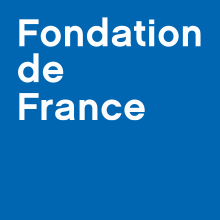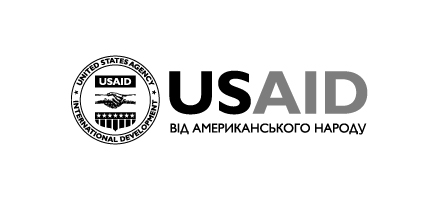
The team of the DOCU/CLUB Documentary Film Club Network and the National Museum of the Revolution of Dignity invited the audience to watch and discuss the documentary “Euromaidan. Rough Cut.”
Reprinted from the website of the National Memorial Complex of the Heavenly Hundred Heroes – Museum of the Revolution of Dignity.
Among the authors of the film are documentary filmmakers who filmed the events and people of the Maidan from the first days of the protest, recording their confrontations with security forces. This film became the first Ukrainian feature-length documentary about the Revolution of Dignity. In February 2014, the team of the NGO Docudays asked the filmmakers to provide their best footage from the Maidan. Volodymyr Tykhyi, Andriy Lytvynenko, Kateryna Hornostai, Yuliya Gontaruk, Andriy Kiselyov, Roman Lyubyi, Oleksandr Techynskyi, Oleksiy Solodunov, and Dmytro Stoykov responded to this request. The director Roman Bondarchuk combined the resulting video essays into a coherent picture of the Ukrainian protest. The film premiered in March 2014. 10 years have passed, but this film still gathers full houses. On February 19, the Information and Exhibition Center of the Maidan Museum in the Trade Unions Building could barely accommodate everyone who wanted to watch the film. Many viewers came to relive those three months of struggle together with the protagonists of “Euromaidan. Rough Cut”, to feel and witness the Revolution of Dignity through the eyes of the film's authors. The discussion of the film was joined by Volodymyr Viatrovych, historian, civic activist and politician; Maryna Lilichenko, lawyer of the Heavenly Hundred families and Ukrainian Armed Forces servicewoman; and Oksana Mykhalevych, legal representative of the Maidan victims. “The film completely immerses the viewer in the atmosphere of the Maidan. It is a very talented portrayal of what we experienced. One does not only see the picture, but also feels the smell of Maidan, the spirit of our protest,” Volodymyr Viatrovych shared his impressions. “It is crucial to have the opportunity to remind ourselves that Maidan is actually our first victory in the war against Russia. Our newest war for independence began with it. It was Maidan that taught us to believe in our victory and to take responsibility for the country.” During the discussion, while reflecting on the lessons of the Revolution of Dignity, its victory and the demands that have not been fulfilled, Volodymyr Viatrovych emphasized that, unfortunately, not all perpetrators of crimes at the Maidan have been punished yet. He believes that another important but unfulfilled task is the opening of the Memorial to the Heavenly Hundred Heroes (which is currently impossible due to the seizure of the lot as evidence in the “Maidan cases” – ed:) “The memory of ordinary people holds on to the physical objects in space, the infrastructure of the memory of the Maidan. This is particularly important for the new generation, who were still very young during those events. I regret that all we have for now is a spontaneous monument on the Heavenly Hundred Heroes Alley, which has been there since February 2014. This is all we have done and all we are capable of as a society to honor the memory of the heroes. We must fix this to preserve the chain of memory of the Maidan for future generations.”


Lawyer Maryna Lilichenko spoke to the panelists about the public demand for fair punishment of the perpetrators of the Maidan crimes. She recalled that judicial reform was one of the demands of the Maidan, and the disappointing state of the Maidan victims' cases in courts is a consequence of the lack of this reform. “Our legislation is not bad, and the judges generally have all the tools to manage the process and effectively conduct trials if they wish. However, only a few judges are ready to take on this responsibility,” stated Maryna Lilichenko. “Investigations into some episodes are still ongoing, many cases are being referred to court, but there is a systematic delay in the process. This huge problem still remains unresolved.” Analyzing the reasons behind this situation in courts, lawyer Oksana Mykhalevych added: “After the Revolution, there was a great public demand for justice. But over these 10 years, society has grown tired of this issue. Unfortunately, civic activists and journalists have stopped attending court hearings on the Maidan cases. Interest in this topic only surges up on the anniversaries of the shootings. This is a very painful situation for me. For lack of constant public demand, investigating the Maidan cases and finding and punishing the perpetrators will take a long time.” Volodymyr Viatrovych added that the decrease in public demand was caused, among other things, by the war: “This is an objective reason. The war somewhat dissolves the memory of the Maidan, turning it into one of the many crimes. Undoubtedly, we are now witnessing even more terrible events, when many people are dying and entire cities are being destroyed. But we have to realize that, even against the backdrop of such terrible losses, we really need the experience of the Maidan. We must preserve the memory of it. This will help fuel public demand and keep control over the restoration of justice.” Photos by the National Museum of the Revolution of Dignity Written by Bohdan Poshyvaylo The development of the DOCU/CLUB Network is funded by the United States Agency for International Development (USAID), the Embassy of Sweden in Ukraine, the National Endowment for Democracy (NED) and the Fondation de France. The opinions, conclusions, or recommendations of this publication are those of the authors and compilers and do not necessarily reflect the views of the governments or charitable organizations of respective countries. The authors and compilers are solely responsible for the content of this publication.




